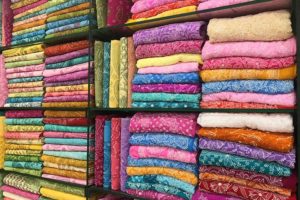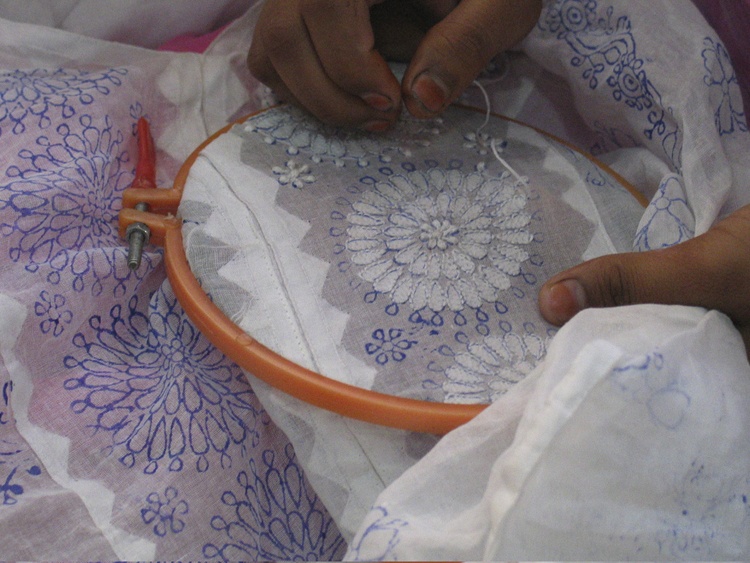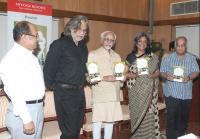In the last few years, Chinese products have invaded Indian markets big time. Be it electronics or toys or household items or cheap fabric, the made-in-China label is all pervasive. Chinese products score because they are cheap, and widely available. And it is making inroads into Chikankari – a form of intricate embroidery work which this city is famous for.
Chikankari is widely believed to have originated in Persia many centuries ago, and it was brought to Lucknow in the 17th century by Noor Jahan, Mughal emperor Jehangir’s queen.
For the last 200 years now, Chikankari has thrived in the city, so much so that today Lucknow is often called the city with the first claim to the craft.
The embroidery has caught the fancy of fashion designers in Bollywood and has made an impact on international couture too. But with the invasion of the cheap machine-made Chinese variety, Lucknow’s reputation as the number one in the craft is facing a stiff challenge.
“I learnt the craft from my mother-in-law. She was an expert at it,” says Nasreen Jehan, Nasreen is a member of the city-based NGO, Lucknow Mahila Sewa Trust, which is working with more than 2,500 women embroidery workers like her. It will take her 15 to 20 days to complete the job, and she will be paid 400 rupees for her work.
Manufacturers employ close to 200,000 women from in and around the city – most of them illiterate Muslims. The pay is not much – those registered with Sewa get a minimum of 35 rupees a day. In many factories around Lucknow, the embroidery-makers are paid as little as 20 rupees or sometimes even less for a day’s work.
But even that paltry sum goes a long way in the slums of Lucknow where most families live in abject poverty. Farida Jalees, secretary of , says now the embroidery workers have a reason to be worried.
Hundreds of thousands of metres of cloth, often with very similar embroidery, is now being made in China and this “Chinese-chikan” has made it to the shop shelves in Lucknow in the past two years.
“In China, the embroidery is done by machine, it looks smooth, it has a better finish. And they can make it quickly, in huge volumes and meet the market demand. This is our biggest challenge,” Ms Jalees says. “Our women here work with hands. So their work doesn’t have that kind of finish.

And it takes a lot longer to make each piece which means our prices go up. Now if we continue to get Chinese-chikan, then we will be pushed out of the market.” And one the women who work independently name Shakeelo bano says”These days demand of chikankari is very low,they are not getting work as we get before from our customers”.
And when she asked about the chinese chikankari then she told” we don’t have any idea about it, we just know that we are not getting the satisfactory work to do as before.”
Women are not aware of international market they impose low demand on customers and change of fashion but due to lack of knowledge they don’t know the correct scenario, but true is China is capturing Indian chikan market, so goverment must take some stringent action to control it” Parveen Abidi, Seceratary, All India women personal Law board and a social worker told this news portal.
Farida Jalees says it should be documented as soon as possible. She is also campaigning for the patenting of the embroidery form to ensure India doesn’t lose out the craft to China.”We are pushing the Indian government to file for a patent on chikan embroidery.
Just as we are fighting for patenting the basmati rice, we must fight for chikan too. It belongs to India, it belongs to Lucknow. It’s a matter of bread and butter for the hundreds of thousands of women who are dependent on the craft.
At Narang’s store in upmarket Sahara Ganj shopping mall, the Chinese-chikan which is known as “Hakooba” is giving serious competition to the original hand-embroidered variety. Shop-owner Gurbir Singh shows some of the samples.
It is difficult for an untrained eye to make out the difference.It’s obvious the made-in-China tag doesn’t seem to bother the customer.In the last few years, Chinese products have invaded Indian markets big time.
Be it electronics or toys or household items or cheap fabric, the made-in-China label is everywhere to see. While only time will tell what impact Chinese chikan will have on the local industry but with the dragon on rampage, it would be only sooner than later that the industry would go to the Chinese, rendering a body blow to the age old finery.
Story by: Ali Hasan

